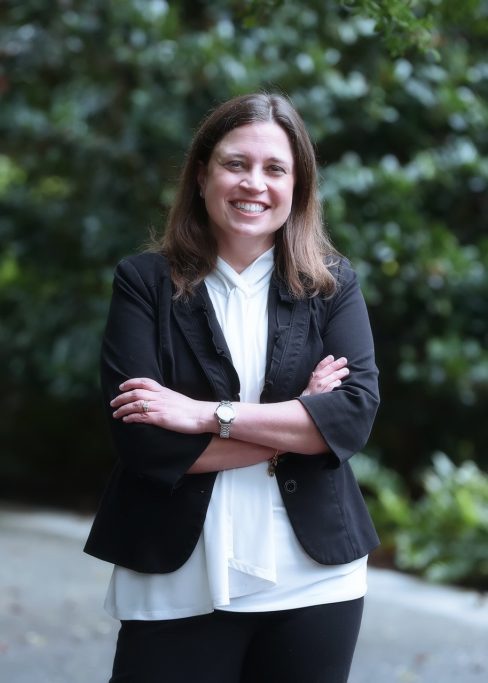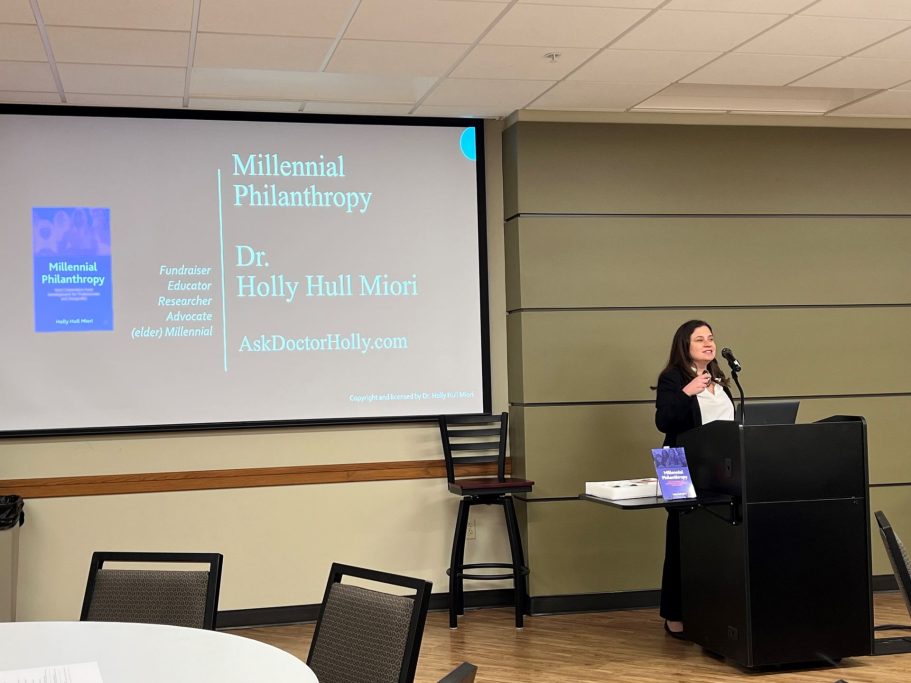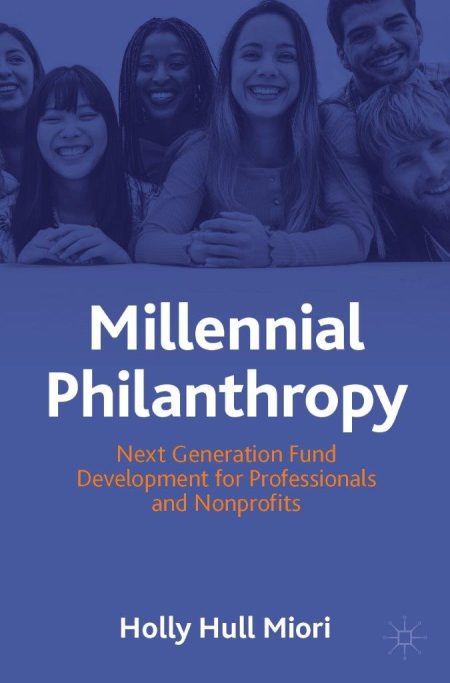“That’s So Millennial of You” – Alumna Researches Millennial Giving Trends
By: Christina Pugliese | January 11, 2024

Holly Hull Miori MPA’18, PhD’21, CFRE has studied the impact of philanthropic giving for years. Her fascination started as a little girl in Corsicana, Texas, where she grew up watching her parents invest in their local performing arts community. For her, the actual amounts donated was not the important part. Rather, it was the care, passion and motivation behind why her parents had given that stuck with her.
“We’re from a small town in a very rural county, so watching my parents get involved whenever someone or an organization needed something was incredible,” Miori said.
She landed her first nonprofit job as an undergraduate at Austin College. Similar to UTD’s current New Dimensions: The Campaign for UT Dallas, Austin College launched a comprehensive fundraising effort during her freshman year and provided opportunities for learning throughout her four years in college. These experiences helped Miori land internships at several nonprofits, from the local Railroad Museum in South Dallas to the Washington Performing Arts Society in Washington, D.C.
After graduating, she worked at several nonprofits and eventually found a home at UT Dallas as director of development for the Center for Vital Longevity, where she began to formulate a plan to pursue graduate studies in philanthropy.
“When I ended up here at UTD, I had the idea of getting another degree in my head for a while,” Miori said. “But I had two small kids so there was never a good time to do it. Eventually when the opportunity arose, I went for it.”
She was inspired by her work to focus her research on millennial giving trends.
“I heard of this millennial-based group, BvB Dallas, while working at the center,” she said. “They hold a powderpuff football game every summer to raise funds for Alzheimer’s research in North Texas. It may seem silly to some, but they can raise anywhere from $700,000 to nearly $1 million every year. After I got UTD involved with this organization, I started to see just how much young people — people my own age — can really make a difference.”

To further her research, the organization allowed her to shadow their various areas over the summer. When fall came, they invited her to come back. Miori said that the data received from BvB Dallas and another organization allowed her to do a comparative analysis on generational reactions to charitable giving and volunteerism.
“I kept diving into these ideas, asking if millennials make significant contributions to volunteerism and giving numbers,” Miori said. “I was really wanting to know: do we matter? As I’ve started to learn that the 75 million people in the United States who make up the millennial population – the largest population — most certainly do matter. And that was evident in the qualitative and quantitative data I found.”
Soon after receiving her PhD in 2021, Miori published her research findings in her book, “Millennial Philanthropy: Next Generation Fund Development for Professionals and Nonprofits” with the publishing house Palgrave Springer.
She found that most millennial giving patterns coincide with presidential and midterm election years and that giving is often done through a social justice lens. Millennials can “angry give,” so much so that it is dramatically more present than in any other generation. According to her findings, this behavior is most likely to occur after big national events, such as hurricanes and shootings, or during significant political moments like the overturning of Roe v. Wade.

Currently, Miori serves the University as senior director of development for the Harry W. Bass Jr. School of Arts, Humanities, and Technology and the Ackerman Center for Holocaust Studies. She strives to reflect her research in her efforts to support UT Dallas and hopes that the findings published in her book help other nonprofit professionals navigate the changing landscape of fundraising.
“By 2030, we’re expecting trillions of dollars to come down from the baby boomers to the millennials,” said Miori. “As a nonprofit community, we need to be prepared. How can we provide respect, a seat at the table and positions in our groups for this generation? We must be ready to answer those questions.”
Miori was recently nominated for a Global Book Award with the Association of Fundraising Professionals. She will also be the keynote speaker at the Harold Grinspoon Foundation’s Life and Legacy Leadership Conference later this year.